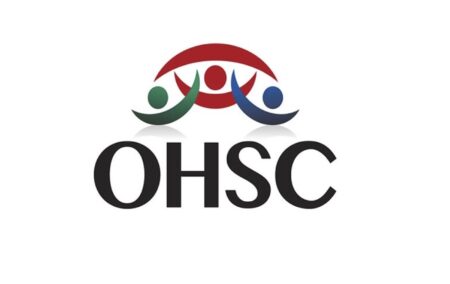Healthcare is already free at the point-of-care for South Africans who cannot afford it. However, the poorest South Africans pay the proverbial price when it comes to the incompetence of the public healthcare system, with long queues, an inadequate number of staff, incompetent staff and all-round poor treatment of the poorest patients who have no alternative.
The future of healthcare
The agency charged with maintaining South Africa’s 52,000 healthcare facilities is the obscure, and often invisible Office of Health Standards Compliance (OHSC). It is common knowledge that South African public healthcare facilities are in a horrendous state of disorder and pose an existential threat to public healthcare. The IRR has documented at least 100 cases of mismanagement, poor quality care and dysfunction in a 2018 report authored by my senior colleague Marius Roodt.
In 2023, the Freedom Front Plus submitted a report on the state of public hospitals to the South African Human Rights Commission on 285 cases where it alleges that the right to dignity, among others, was violated. The report was released to the public in both a redacted and unredacted form, and the latter makes for some horrific reading.
The OHSC is also the agency in charge of accrediting healthcare facilities for the National Health Insurance. Only NHI-compliant facilities will take part in the scheme.
However, the agency is not meeting its own inspection targets. According to their 2022/23 Annual Report, the Compliance Inspectorate was performing at 11.8% of its target.
Only 44% of complaints were resolved 30 days after the receipt of information from health establishment and/or complainant, against a set target of 75%. A mere 2% of complaints were resolved within 6 months of investigation, against a set target of 70%.
The Health Ombud admitted to Parliament in October 2022 that “we couldn’t go into the NHI with the level of inspections and certifications we have done so far, because I [the ombudsman] suspect most of the hospitals will not meet the high standard required by the NHI”.
In that same meeting, he was quoted as saying “NHI was a necessary evil to be swallowed”.
Yet, the standard of public healthcare has not improved, due in part to the poorly funded budget of the OHSC.
The only way to hold it accountable and to ensure that it meets its targets is to vote wisely. There is no better accountability mechanism than even the slightest threat of losing power.
Money or expertise?
Without boring you, it is worth noting that the OHSC has a budget R600 million less than the agency tasked with youth skills development.
It only has 42 certified inspectors for all of South Africa’s healthcare facilities, public and private. Nearly one third of the agency’s employees work in administration, noting that “[the] extent of inspection coverage [is] not matched by available resources”.
A lack of resources and expertise is exactly the reason why South Africa’s public healthcare system is on the verge of the abyss.
The National Health Insurance system is being forced on a public healthcare system that is ill-equipped to handle not only itself, but the patients who rely the most on fee-free healthcare.
Improving the current healthcare system, reducing backlogs, stopping corruption and ensuring the highest standards should be the government’s key priority. It should ensure that our doctors have jobs and skills to provide the best quality healthcare to all their patients, no matter their income.
Medical professionals are correct to be concerned. Brushing off the “well-to-do”, “rich” South Africans who can afford medical aid does not solve the problem. In fact, losing those people puts further strain on the healthcare system, as the IRR has noted. Taxpayers who fund the public healthcare system – and pay more for better quality healthcare system – are the government’s last hope of a relatively functioning system. Lose them, and everyone suffers. Especially the poor.
Freedom
The current healthcare system allows South Africans the opportunity and the freedom to choose their healthcare provider. Roughly nine million people have opted, on top of their tax contribution, to pay for better quality healthcare. That is their right. Government cannot take away that freedom because of a perceived threat from private medical schemes.
As usual, the government sees the private sector as an ideological threat. As the Executive Director of the CRA, Chris Hattingh, routinely reminds; “Ideology -> Policies – > Consequences”.
A socialist ideology leads to nationalisation policies which invariably have a negative impact on those citizens who most rely on public services like healthcare and water – the most prominent victims of the ANC’s destructive policies.
Black market medicine
One might be surprised to see this mentioned when the NHI hasn’t even properly set off yet, but the black market is the inevitable, infinitely more expensive solution to a healthcare system that does not function. Shortages are commonplace in Cuba and Venezuela where “birth control pills cost 14 times the minimum monthly income”.
The Department of Health has reportedly started an electronic surveillance system that keeps an eye on medicine stock. However, the system can only work if there is money to ensure that medicines are procured effectively and timeously.
The solution to SA’s healthcare problem?
Healthcare vouchers, given directly to all South Africans so that they can choose who provides their healthcare. This system will provide incentives to both the public and private system to compete fairly in an open market. The consumer, as in the retail sector, will be king. And the consumers will have their rights.
The NHI is simply not the solution to South Africa’s healthcare problems. A freer, better-run healthcare system is.
If you like what you have just read, support the Daily Friend.

